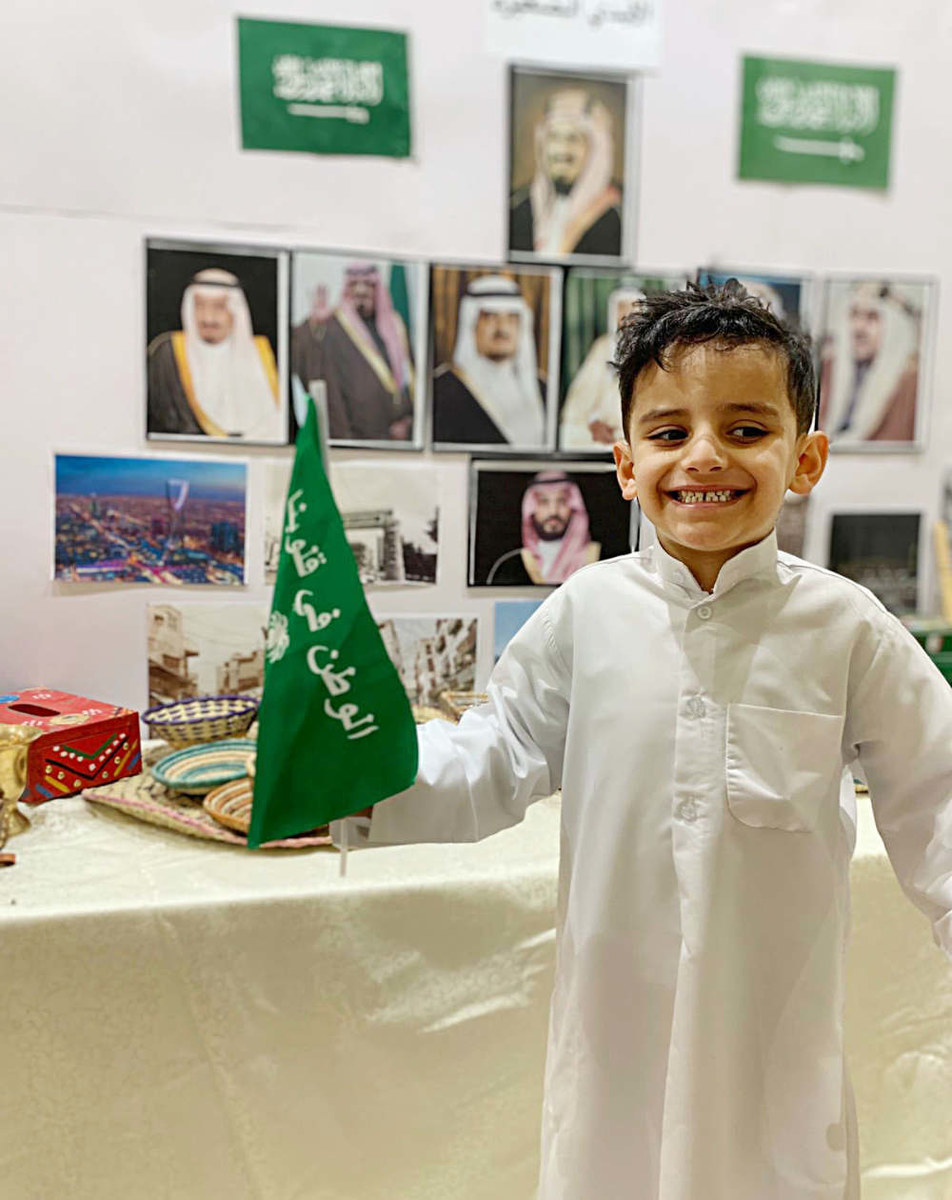RIYADH/JEDDAH: The Kingdom’s schools celebrated the country’s first Founding Day under the theme of “When We First Started,” which stressed the importance of young people knowing the history of the Saudi state.
Last month, it was announced that Feb. 22 would officially be known as Founding Day and it was designated as a new annual national holiday.
It was established to recognize the foundation of the first Saudi state in 1727 by Imam Mohammed ibn Saud. Celebrations started across the country on Tuesday and will last until Feb. 24.

Schools across Saudi Arabia are taking part in the Founding Day celebrations a day before or after the annual national holiday. (Supplied)
The festivities offer visitors different activities by showcasing traditional Saudi garments and costumes, art exhibitions, fireworks, and a parade.
Schools took part in the celebrations either a day before or a day after the national holiday.
“Being part of the Kingdom of Saudi Arabia is a huge source of pride, especially being part of its growth,” said Rana Kurdi, a second grade homeroom teacher at the girl’s section of King Faisal School. “When you look at the children explaining this important day — Founding Day — they are filled with excitement, especially that they will be part of it. Furthermore, their honest expressive feelings and thoughts toward our country is a source of hope, knowing that they are the future of our country. It is my honor to be an active part of this ever-developing nation.”
FASTFACTS
• The festivities offered visitors different activities by showcasing traditional Saudi garments and costumes, art exhibitions, fireworks, and a parade.
• Parents were asked to assist with the preparations by gathering symbolic items that highlighted the culture of the Kingdom.
Parents were asked to assist with the preparations by gathering symbolic items that highlighted the culture of the Kingdom or small flags bearing the Founding Day logo, preparing a traditional dish for their children to distribute among fellow students, and putting together traditional costumes for children to wear to school.

Yousif Salman celebrating Saudi Founding day, a day before the big event on the 22nd. (Supplied)
“As a Saudi mother and a lover of my country, I was pleased about my child’s participation in Founding Day,” mother-of-two Maha Salama told Arab News. “He will learn about the history of his country and the beginning of its founding and the unification of our Kingdom through school activities. This will enhance his loyalty and belonging to his homeland.”
She said that her children’s school, Little Hands in Riyadh, had sent out the following message: “We celebrate this day, and we are all proud of the firm roots of the Saudi state, recalling its founding, and what it achieved of unity, security and stability, and its continuation in construction, unification, and development. Please make sure the children are wearing the Saudi traditional costume, with a child’s favorite dish to share with the kids as we invite you to join us in our activities.”
Jeddah mother-of-five Neama Hamed said her sons, aged seven and eight, would wear the traditional Saudi white thobe. Her daughters, aged five, 11, and 12, would wear a traditional Saudi costume of a green dress with gold embroidery.
In Jeddah, parents made a beeline for different stores to buy traditional garments for their kids to wear and items to take to school.
Hamed said there was a “great demand” in the shops and markets, and that stores were offering a variety of different items related to Founding Day. “I found everything I was looking for in good quantities, from a brooch, flags, and T-shirts. The shops offered beautiful and diverse merchandise and they were crowded with parents, teachers, and students.”
Students were asked to make videos talking about the Kingdom’s history, the battles that took place, and the leadership throughout the history of the Kingdom as part of the school activities.
Parents could also buy their traditional costumes from the Jahez food delivery app. Its special Founding Day campaign, with the Diriyah Gate Development Authority, was aimed at ensuring that everyone could be well prepared for the festivities.




























